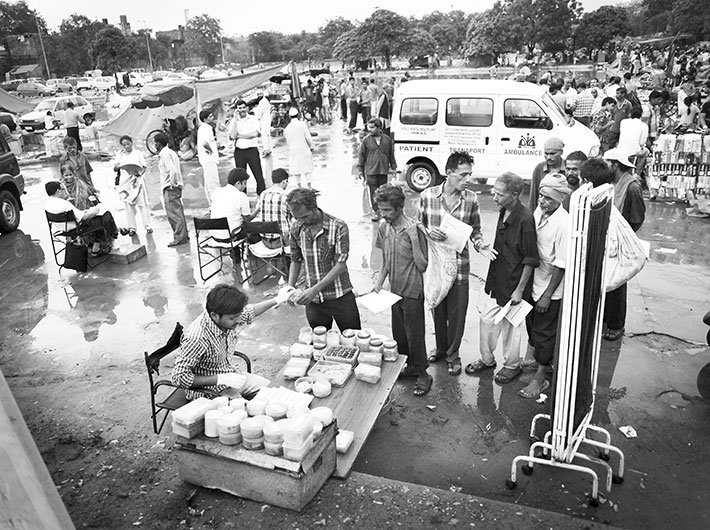To understand the new law on mental health, our reporter turned to psychiatrist Vikram Patel who was member of the committee that drafted India’s first mental health policy, 2014
In March, parliament passed the Mental Health Care Bill, which among other things decriminalises suicide and bans the use of electric shocks for children. To understand the new law, Archana Mishra turned to psychiatrist Vikram Patel, former chairman and co-founder of the Centre for Global Mental Health at the London School of Hygiene and Tropical Medicine. Patel, named among the Time magazine’s 100 most influential people in the world in 2015, was member of the committee that drafted India’s first mental health policy, 2014. Excerpts from the interview:
How would you rate the Mental Health Care Bill, 2016?
It’s one of the most progressive mental health care bills in the world. One of the reasons is the word ‘care’. It focuses on people with mental health problems, who should receive care, which most bills really don’t talk about. Policy wise, it has got advanced and progressive directives preparing us for the future that probably one day you might have mental illness like dementia or Alzheimer’s.
It’s very interesting, in the case of India, that we have the right to mental health care, which does not exist for any other medical conditions. We don’t have that right for tuberculosis or diabetes care. Parliament has passed a bill which entitles a person with mental health problems to comprehensive care in the community on public finances. Still, the question is how it will be implemented?
How is it different from the Mental Health Act, 1987?
The previous law allowed a family member of the patient to say that ‘he/she is mentally ill’ and police or a magistrate could consign the patient to a mental hospital. It is impossible to do that under the new bill. A mentally ill patient has the same right to freedom as any other Indian. Having a mental illness does not take away that right. There is a fundamental paradigm shift. The previous mental health act was about protecting society from mentally ill patients; this bill is to protect mentally ill persons from abuse by society. The previous bill was locking him away and this bill is keeping him out.
Do you think the change in terminology from ‘mentally ill’ to a ‘person with mental illness’ can lower the stigma related to mental illness?
We don’t call someone a leper, retarded or schizophrenic. I think words matter and you need to be careful about their usage. I will never refer to somebody as demented or schizophrenic or bipolar, I would say he has a ‘bipolar disorder’.
The bill is the first step in bringing a change but it is not at all enough. Change will happen when people will come out and tell their stories just like the LGBT community. I feel it is the LGBT moment for the mental health patients. It will be young people who will be driving the change. And it is for two reasons – first of all, they are open to new ideas, and second, most mental illnesses begins in youth. So, they are the most important demography.
Is it possible for people with mental illness to live with dignity in a society where social exclusion, violent victimisation and human rights violations are prevalent?
There are so many inequalities in our country. Also there are so many rights to protect us against the victimisation due to caste system but it hasn’t disappeared. The point here is that when you have a legal instrument, that is the first important step to ensure that you can enforce that right. Without a legal instrument that entitles you to the right, you can’t enforce it. It’s important to recognise the power of the law; the question is how that law is enforced effectively, which is, of course, the next step. I certainly believe that the law is a fundamental foundation for protecting people with mental illness but just the law itself cannot stop it from happening.
What are we looking at exactly when we say ‘community-based approach towards treatment and rehabilitation of individuals’?
It means care must be provided at the primary level or home-based care through ASHAs [accredited social health activists] rather than focusing on hospitals and institutions run for psychiatry care. The bulk of the services must be provided at the primary level. The National Health Policy 2017 talks in the same direction. The NHP and Mental Health Care Bill are very well aligned.
How will the proposed law address the problem of mentally ill patients being abandoned even after they have been cured?
One of the things that bill does is that it requires the government to run social care residential facilities in the community to enable people in this situation to be discharged from the hospitals but not on to the streets. It recognises that there is a problem that families abandon people but it is, therefore, now the role of the state to reason why people are stuck in hospitals. It will function like any other residential care facility for children or orphans or abandoned women.
What are the further changes, if any, required in the bill?
I think there is no lacuna at all. The challenge rather is getting it implemented. There is too much in it. They have to back it with resources; states need to create a system because all these are state level legislations. There has to be a monitoring and accountability system in place that can actually monitor how states are rolling out this new law in the coming two years. States should have budgetary allocation for health above eight percent [of GDP] where a large chunk has to be spent on mental health care.
archana@governancenow.com
(The interview appears in the May 1-15, 2017 issue)

